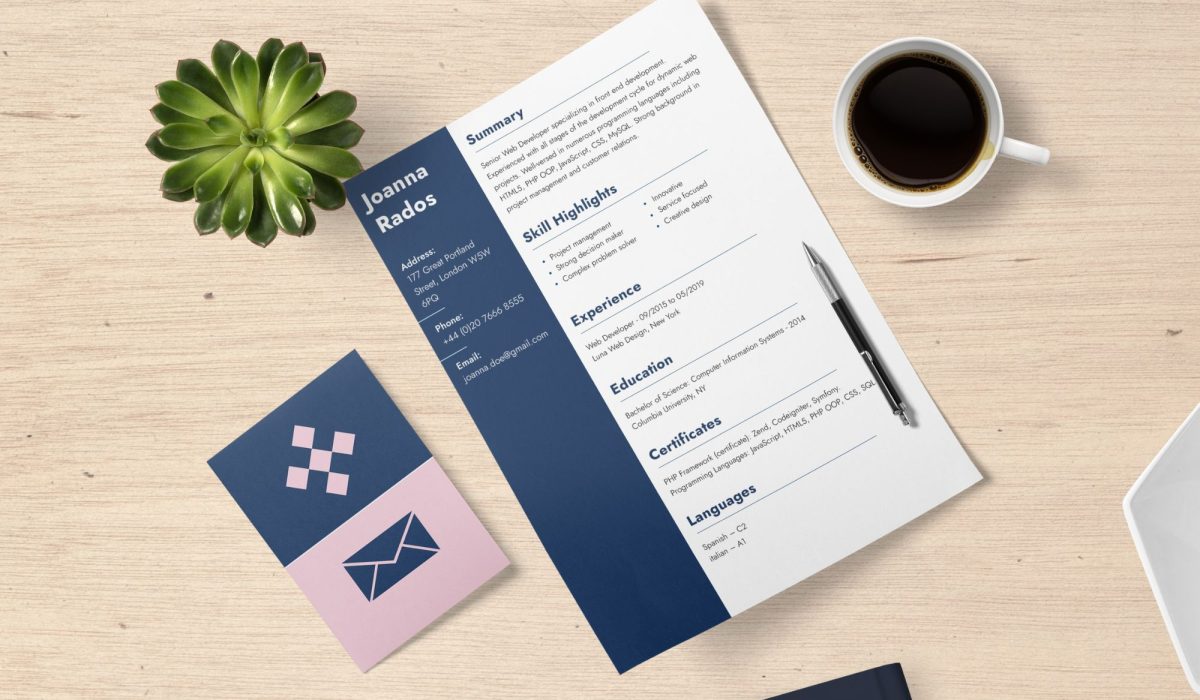A successful job search starts by understanding the importance of a well-structured CV that effectively highlights your key skills and relevant achievements. To ensure it’s easy to read for both hiring managers and Applicant Tracking Systems (ATS), you must use a clear font and concise language, ultimately focusing on creating a winning CV that clearly showcases your career progression and most recent accomplishments. Our team at Pineapple Recruitment gives you tips for creating an up-to-date CV that stands out.
Choosing the Right CV Template
You should select a CV template that is tailored to your job title and industry, making sure to use keywords from the job description to optimise it for Applicant Tracking Systems (ATS). When choosing from the different options, consider factors such as the CV design, section headings, and bullet points to ensure your document stands out, and always confirm the template is suitable for your level of experience, whether you’re a recent graduate or an experienced professional.
Contact Information and Personal Details
Ensure your CV includes up-to-date contact details, such as your phone number and professional email address, to make it easy for employers to reach you, and consider adding a link to your LinkedIn profile or other relevant professional social media. Finally, always double-check your personal details—including your name and address—to avoid any errors and ensure complete consistency throughout the document.
Education and Work History
List your academic achievements, including degrees and A levels, in reverse chronological order, making sure to highlight relevant qualifications and skills. Similarly, include your work history starting with your most recent position, using the present tense to describe your current role and responsibilities. To make your CV easy to scan, use bullet points to break up large blocks of text, focusing on key elements such as job title, company, and dates of employment.
Work Experience
When describing previous roles and responsibilities, use the past tense, explaining your achievements and the skills you used to accomplish them, while focusing on recent achievements and removing any outdated information to keep your CV relevant and up-to-date. Crucially, use action verbs and quantifiable results to describe your experience, using metrics such as “increased sales by 25% in 6 months” or “managed a team of 10 people.”
Skills and Qualifications
You should highlight your key skills and qualifications, always tailoring your CV to the specific job description and requirements. Use a dedicated skills section to list all your relevant abilities, including technical skills, language proficiency, and soft skills. Additionally, consider adding relevant certifications, such as those from the Royal Society, to effectively demonstrate your expertise and commitment to your field.
Building and Editing Your CV
Consider using a CV builder to easily create and edit your CV, taking advantage of features like templates, formatting tools, and grammar checks. Additionally, get help from a careers adviser to review and improve your document, ensuring it’s fully tailored to your career goals and job search strategy. Finally, stay up-to-date with the latest CV trends and best practices by utilising helpful tips and resources found online.
Curriculum Vitae Structure
You should use a clear and concise structure, including section headings and bullet points, to make your CV easy to read and understand. Be sure to include a personal statement or summary at the top of the document, which highlights your career goals and most relevant achievements. Finally, use a standard font and formatting throughout your CV, while actively avoiding the excessive use of bold or italic text.
Updating Your Existing CV
You should regularly review and update your existing CV to ensure it remains relevant and effective throughout your job search, which includes removing outdated information and adding new skills and qualifications to keep the document fresh and up-to-date. Finally, consider seeking help from a careers adviser or utilizing online resources to further improve your CV and significantly increase your chances of getting noticed by employers.
Job Application and Cover Letter
Use your CV as a starting point for your job application, tailoring it specifically to the job description and requirements for each role. Additionally, write a compelling cover letter that complements your CV, highlighting your relevant skills and experience while clearly explaining why you are the ideal candidate for the job. To strengthen your application, be sure to use language directly from the job description to describe your skills and qualifications, thereby demonstrating your understanding of the job requirements and your enthusiasm for the role.
Using CV Templates Effectively
You should choose a CV template that is tailored to your industry and job title, optimizing it for Applicant Tracking Systems (ATS) by using keywords and phrases directly from the job description. Be sure to customise the template to fit your specific needs, adding or removing sections as necessary to effectively showcase your unique skills and experience. Remember to use the template only as a starting point, rather than a one-size-fits-all solution, to create a unique and effective CV that will stand out from the crowd.
Applicant Tracking Systems and Keyword Optimisation
To optimise your CV for Applicant Tracking Systems (ATS) and increase your chances of getting noticed by employers, you must use keywords and phrases directly from the job description. Be sure to include all relevant skills and qualifications, describing your experience and achievements using the same language found in the job requirements. Finally, consider using a CV builder or online resources to help you ensure your CV is formatted correctly and includes the necessary keywords for ATS success.
Job Search Strategies
You should use your CV as a starting point for your job search, making sure to tailor it to the specific job description and requirements for every application. Consider working with a careers adviser or recruiter to improve your overall job search strategy and increase your chances of getting noticed by employers. To find relevant roles, use online resources and job boards, and always remember to tailor both your CV and cover letter to each application to maximize your chances of success.
Looking for help in finding a new job?
Speak to our team today!





